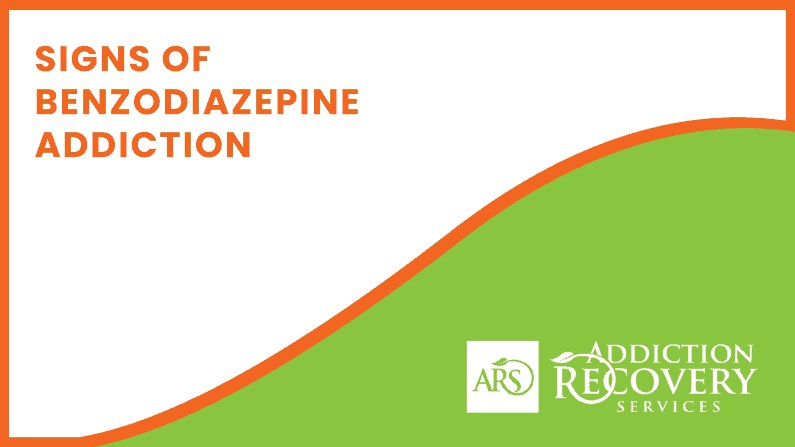
Benzodiazepines, commonly called benzos, are a pharmaceutical medication primarily used to help those with anxiety, sleep disorders, and seizures. Over 37% of people in New Hampshire have reported experiencing symptoms of anxiety and depression. It’s not uncommon for people who are dealing with mental illness to turn to methods of substance use to help alleviate their symptoms.
Here at Addiction Recovery Services in New Hampshire, we understand that it can be concerning when you notice signs of addiction in a close friend or loved one. We want to be able to give help to all who need it, so read on to learn more about what to look out for if you think someone might be dealing with Benzodiazepine misuse.
What Happens When Benzodiazepines Are Misused?
Table of Contents
Benzodiazepines come in many forms. Some of the more popular ones you might’ve heard of before include Xanax, Valium, or Ativan. Benzos have a higher chance of the people taking them experiencing withdrawals, even when being taken as prescribed. They generally have a short lifespan, meaning they enter and exit the body faster than some other medications might. Because of this, your body has less time to adjust to not having the substance in your system, leading to withdrawal symptoms.
When misused, there is a risk of overdose. When combined with other substances, the outcome can be fatal. In addition, there are other ways Benzos can affect a person’s physical and mental health over time.
Benzo Use Affecting Your Mental Health
Long-term use of benzodiazepines has been known to potentially worsen the problem they might’ve been originally taken for. For example, if someone started using benzodiazepines to help with anxiety, it could worsen their anxiety instead of helping it if benzos are being misused.
In addition, benzos have been known to have other long-term side effects such as depression, anxiety, paranoia, aggression, irritability, and impaired memory.
Benzo Use Affecting Your Physical Health
Using benzos long-term can also impact your body in many different ways. Here are just a few of the side effects that can occur with long-term misuse:
- Weakness
- Headaches
- Nausea
- Lethargy
- Skin rashes
- Weight gain
There is also some evidence to suggest that heavy use of benzos can increase the risk factors of epilepsy, stroke, and brain tumors.
Recognizing a Benzodiazepine Addiction
There are things you can keep an eye out for when you think your loved one has a benzodiazepine use disorder. Some key symptoms of benzo addiction include:
- No longer participating in things they used to enjoy
- Missing out on social events or work due to substance use
- Being unable to not use the substance even if they don’t want to
Another important thing to look out for include symptoms of withdrawal such as:
- Vomiting
- Dizziness
- Tremors
- Twitching muscles
- Irritability
- Poor concentration
- Hallucinations
- Seizures
What to Do When Overdosing From Benzodiazepines
Overdosing on a substance can be serious. In the case of benzodiazepines, overdosing on benzos alone is rarely fatal, however, when combined with other substances it can be. Getting medical attention is important, but in order to do so, you need to know the signs of overdose:
- Jitteriness
- Shallow breathing
- Mood swings
- Unconsciousness
If you believe someone is overdosing on benzodiazepines, call for medical attention. It’s important to be honest with them about what is occurring so they can provide the proper help. New Hampshire’s Good Samaritan Law prevents you from getting into any trouble for seeking medical help for an overdose.
Intervention for a Benzodiazepine Problem
If you believe your loved one is dealing with a benzo use disorder, don’t be afraid to talk to them about it. Remember to be open and understanding and not accusatory. Substance use disorder has many reasons behind it and other things that can arise because of it. Here at Addiction Recovery Services, we believe in the importance of treating and understanding the whole person instead of a singular problem.
Find a Benzo Addiction Treatment Near You
Addiction Recovery Services in New Hampshire is ready and happy to help you on your road to recovery. We understand that each recovery journey is different from the next, which is why we offer many options for anyone seeking help in order to find an option that works best for them.
We want to empower you on your healing journey. If you have any questions about our programs, substance use disorders, benzodiazepine addiction treatment or anything else at all, don’t hesitate to give us a call at (978) 228-5853.
FAQs
How do I tell if a loved one is addicted to benzodiazepine?
Keep an eye out for common symptoms such as lethargy, increased irritability, vomiting, mood swings, and worsened depression or anxiety. These are all common signs of long-term benzodiazepine use.
What makes benzodiazepines addictive?
Due to its short lifespan, many people who use benzos experience withdrawal. One of the ways to stop that is by taking more benzodiazepines. This can lead to a cycle of not stopping.
What are the different types of benzodiazepines?
There are many different names for benzodiazepines. Some of the most common include Xanax, Valium, Ativan, Halcion, Niravam, Dalmane, and many more. They each have their own dosages and purposes.

